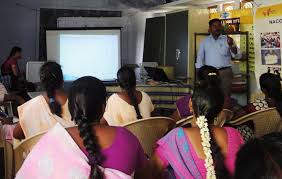Introduction:
Since 2008, Save the Children, with the support from GFATM has been facilitating focused interventions, addressing to Most at Risk Population (MARPs) with full range of services – People Who Inject Drugs (PWID), Female Sex Workers (FSW) and their clients, building linkages with all existing and future response for accelerating national response through collaboration with NGOs, civil societies, private sectors, professional bodies and institutions.
“Expanding provision of essential harm reduction services for IDUs, GF-907 has been successfully implementing by seven NGOs as SR from Nov. 2011 –March 2012. Samaj Kalyan O Unnayan Shangstha-SKUS is one of the SRs or implementing partners working at Dhaka, Narshingdi, Chittagong and Cox’s Bazar district. Capacity building component has been given due importance in the work plan.
Refreshers for MTs is one of the capacity building initiatives which aims at creating a panel of trainers to train the next level workforce for providing harm reduction services to IDUs.
Rationale:
The essential harm reduction services such as Syringe Needle Exchange, Condom promotion, STD/ Abscess/General health support provision, Counseling service, Awareness through health education, resting, bathing and recreational facilities for the People Who Inject Drugs (PWID) are provided through DIC and outreach. In order to provide quality services, development of DIC based staff through various capacity building initiatives is must. Refreshers Training of for PE/OWs is strategically a very important event for OWs as the front line implementers of this GFATM Project.
1. Objective of the Refreshers Training for MTs):
Through this training course, MTs of GF-907 project will be able to competently design, implement and evaluate quality training activities. Thus, the objectives of the refresher training are:
- Refresh the basics concepts of training
- Enhance the skill and be more confident on training facilitation
- · Reinforce the knowledge on 9 messages
2. Training Venue and Duration:
The tentative venue will be at FNB as we find it cost effective and suitable for training. The training will be organized with the active support from technical specialists of IDU intervention of HIV/AIDS sector, Save the Children as required. Duration of the Training were 3 days.
3. Participants’ category and number
Particulars of training participants:
The training has been designed for the MTs who are mainly DIC managers/Coordinator working under GF-907 project. A detail participant list is will be prepared and shared in collaboration with Save the Children. A total of 20 (Twenty) Master Trainers will be took part in the planned events.
4. Facilitator (s) Team:
“Refresher Training for MTs” have organized and conducted with the technical assistance from Save the Children. Training venue was FNB (Federation of NGOs Bangladesh), Shamoly, Dhaka.
A group of trained and experienced facilitators have conducted the training. They are
- Md. Furkan Hossain, TC-SCI
- Dr. Mirza Moinul Islam,TC- SCI
- Ms. Rehana Akhter, DPM, SCI
- Md. Salah Uddin, SKUS, GF-907
- Mr. Nakid Hossain Bhuyan, SCI
- Mr. Kabir Hossen, KMSS
- Training methodology:
Methodology combined with lecture method and participatory methodology such as question & answer, small group discussion, role play and simulation game has followed during the training sessions. Visual presentation also done for some topics.
8. Expectation of the Participants:
In day one we have asked participants about their expectation from the training. We have provided them a VIPP card to all and found the following expectation. There were many common and we short it out and keep only exceptions,
– What are the factors that one skilled trainer must have to give impotance
– What would be the vocal of the trainers?
– How one can manage time while conducting training
– What are the key features of a expert trainer
– What are the areas that one should consider while conducting training
– What are the basic features of the training?
– What are the applied skills mean?
– About training monitoring
– How one can become a skilled trainer within short time
– How one trainer can attract people/participants?
– Importance of use materials in training
– Basic of training
– Training evaluation methods
– Reporting and monitoring of a training course
– HIV/AIDS situation
– IDUs program
– Advocacy and Counseling
9. Topics Discussed
Day: 1
Training Inaugural:
Refresher Training for MTs was organized by SKUS and conducted with the technical support from SCI. Before start the training from SKUS, Md. Slah Uddin welcome all participants in the training. He also thanked all organization to send their participants.
From Save the Children Md. Furkan Hosain shared objective of workshop. He also gave participants a brief overview of the training course. The welcome them all and told this is an opportunity for MTs to become familiar with the training methods as well as program. Learning, Education and Training: In this session participants learned about Basic definition of learning, Education and Training, difference between training and education etc.
Facilitation: In this session participants learned about what is facilitation what the key features of Facilitation are.
Training Materials: In this session MTs learned why trainers needs of training materials, what training materials used for training and how to developed training materials and importance of it.
Training Cycle: One of most important components of the MTs training was to discuss basic of a training cycle. In this session participants learned about basic of training cycle and they learn step by step every cycle.
Training Methods: In this session participants has gone through participatory methods of training which they can use for training at field level.
Differentiate between trainer and facilitator: In this session MTs learned about the basic differentiate between trainer and facilitator and define their role in training.
Facilitator’s quality and skills: In this session participants know about the main attributes of a facilitator and what are they skills need to become a good facilitator.
Training Evaluation: In this session participants learned about the different steps and stage of evaluation, and the method they can use for training evaluation.
Day: 2
Day 2 started with the recap of previous day. In this session 3 participants shared and discuss previous days learning. Moderator helped them.
Training report: In this session participants learn about the training report and they have take part in discussion in what are issues should address during reporting. After the above discussion facilitator grouped the participated in to 10 group and provide them topic to conduct and facilitate training considering the participants. Most of the session was Practice session for the MTs to show their skills and ability to deliver the training. MTs has given time to take necessary preparing and them they present their topics in front of the participants and facilitation. Then they have evaluated by the evaluator and then all participants gave their comments for development.
Practice session: 1
HIV and AIDS
Practice Session: 2
STI and STDs
Practice Session: 3
Safer sex practice
Practice Session: 4
Drug and Drug dependency
Practice Session: 5
Safer injecting practice
Practice Session: 6
Outreach and DIC based activities
Day: 3
Day 3 started with the recap of previous day. In this session, 3 participants shared and discuss previous days learning. Moderator helped them.
Practice session: 7
Abscess and Abscess Management
Practice session: 8
Peer Education
Practice Session: 9
Detoxification
Practice Session: 10
Effective Communication and BCC
Training post test: As per pre set question a post test have taken and beside those a formal participatory evaluation completed.
After that a formal closure session conducted. During the closure Director of the FNB was present.
Conclusion: After two years MTs have got the opportunity to take part a refresher training which they enjoyed and actively take part. We have gone though again in line with the expectation and find most of their expectation have addressed. While giving the closing marks we both facilitator have given tress on the application of training. From part of the organizer we have given requested them to utilize training in local level.
















